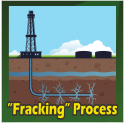PA Treatment Plant Sued Over Drilling Wastewater
PITTSBURGH (ASSOCIATED PRESS)
Two environmental groups sued a Pittsburgh-area municipal sewage plant on Tuesday, saying it never got a permit from the state to treat often-toxic Marcellus Shale drilling wastewater, although the plant's head said it has stopped treating the wastewater.
The lawsuit was filed in Pittsburgh federal court against the Municipal Authority of the City of McKeesport by Clean Water Action and Three Rivers Waterkeeper under a citizen enforcement provision of the federal Clean Water Act.
The groups contend that the authority, along with other wastewater treatment plants, accepted the wastewater without ever properly seeking authorization by the state, which should have included submission of an application, public notice and comment.
Since drilling companies began using high-volume hydraulic fracturing in earnest in 2008 to extract natural gas from the shale, they have taken millions of barrels of the briny waste to treatment plants that discharge into rivers where utilities also draw drinking water for hundreds of thousands, if not millions, of Pennsylvanians.
Amid growing concern over harm to drinking water, the state Department of Environmental Protection set a May 19 deadline for drilling companies to stop taking the salty, chemically tainted wastewater to riverside treatment plants -- 16 in all, mostly in western Pennsylvania -- which are ill-equipped to remove all the pollutants.
McKeesport authority executive director Joe Rost said the plant has heeded the DEP request and is not accepting the wastewater any longer, but he said that officials there don't want to approve a formal ban in case technologies develop that would enable the plant to treat such water effectively in the future.
The lawsuit is seeking a formal ban on the plant accepting the wastewater to safeguard the Monongahela River, which provides drinking water to the Pittsburgh and several suburbs.
A key goal of the lawsuit is to stop the treatment plants from taking the wastewater, beyond the DEP's voluntary request, Myron Arnowitt of Clean Water Action.
"We'd like to have some legal, verifiable way of knowing that plants are not going to take this wastewater," Myron Arnowitt said. "DEP has asked drillers to take voluntary action and some have said that they're doing that. Our concern is that that could change next week and we could end up back where we started."






